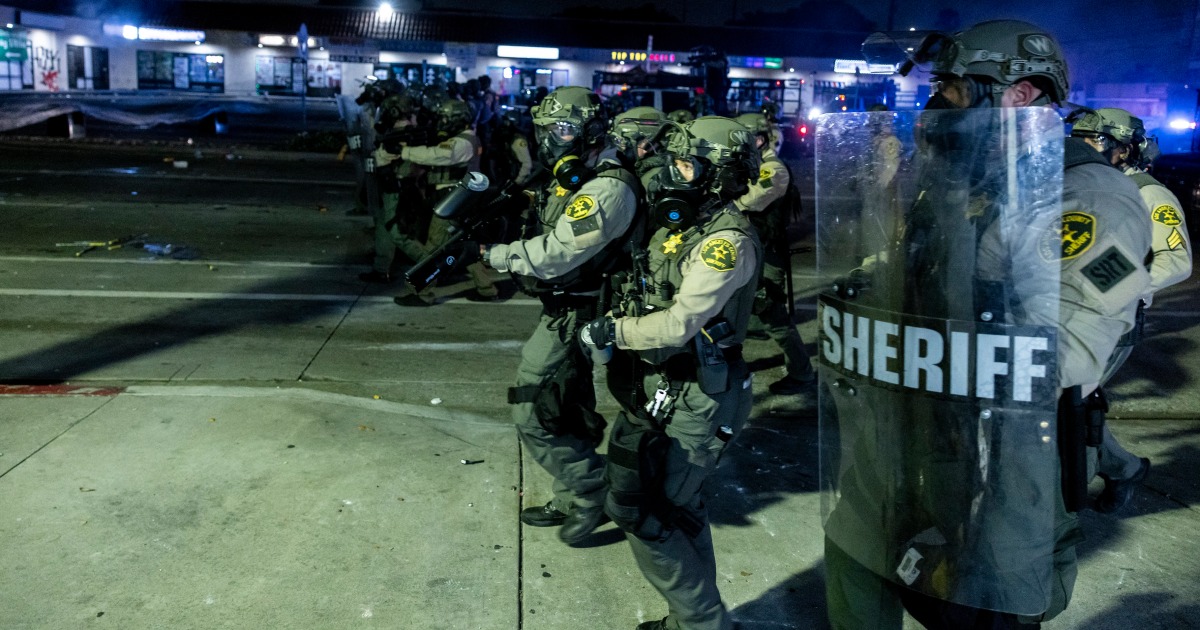The Response to Civil Unrest: Insights from Sen. James Lankford
In a recent appearance on NBC News’ "Meet the Press," Senator James Lankford, a Republican from Oklahoma, expressed support for President Trump’s decision to deploy the National Guard across various states as a measure to alleviate growing tensions in the wake of civil unrest. This unrest was primarily ignited by the tragic murder of George Floyd, an event that has galvanized protests nationwide and spurred discussions about racial injustice and police brutality.
Aiming to De-Escalate Tensions
Sen. Lankford emphasized that Trump’s actions were motivated by a need to “de-escalate all the tensions” arising from the protests. His remarks suggest a recognition of the urgency surrounding these protests, marked by escalating violence and public discontent. "What President Trump is trying to do is say this is not going to take weeks this time," Lankford noted, highlighting a desire for a swift response.
Support from the Military: National Guard and Marines
In a broader context, Lankford also referred to Defense Secretary Pete Hegseth’s proposal that active-duty Marines could be deployed to assist in managing protest responses. Lankford stated in a post on X that if violence were to persist, active-duty Marines stationed at Camp Pendleton would be mobilized and placed on high alert. This reflects an increased focus on maintaining order during a time of heightened unrest.
However, Lankford clarified the intended role of these Marines, stating emphatically that “active duty Marines are not going to be put into local law enforcement.” His intention appears to be to assure the public that any military involvement would aim to support local law enforcement rather than replace it. He envisioned a scenario where the presence of the Marines could prevent protests from “spiraling out of control.”
Overwhelmed Local Authorities
During the interview, Lankford acknowledged the challenges faced by local law enforcement agencies, specifically mentioning that the Los Angeles Police Department was “being overwhelmed.” This recognition of local limitations underscores the complexities of managing large-scale protests and the necessity for additional support during such critical times.
Alternative Views on Military Involvement
Contrasting Lankford’s stance, Senator Ron Johnson, a Republican from Wisconsin, articulated a different perspective during his interview on CNN’s "State of the Union." Johnson asserted that the deployment of active-duty Marines might not be necessary to restore order. Instead, he advocated for the National Guard, referencing how this approach had been effective in his home state. "Bring in the National Guard. That’s what happened here in Wisconsin, and it worked," he stated confidently, suggesting a preference for National Guard intervention over active military involvement.
The Political Landscape
The discourse surrounding military involvement in civil unrest reflects broader themes of governance, crisis management, and public safety. As senators like Lankford, Johnson, and others weigh in on the situation, their differing views reveal the complexities lawmakers face when addressing the intersection of military support and civilian protests.
By examining the motivations and responses articulated by these senators, it becomes clear that discussions about civil unrest continue to evolve, shaped by the immediate context of violence and the enduring call for justice and reform.


